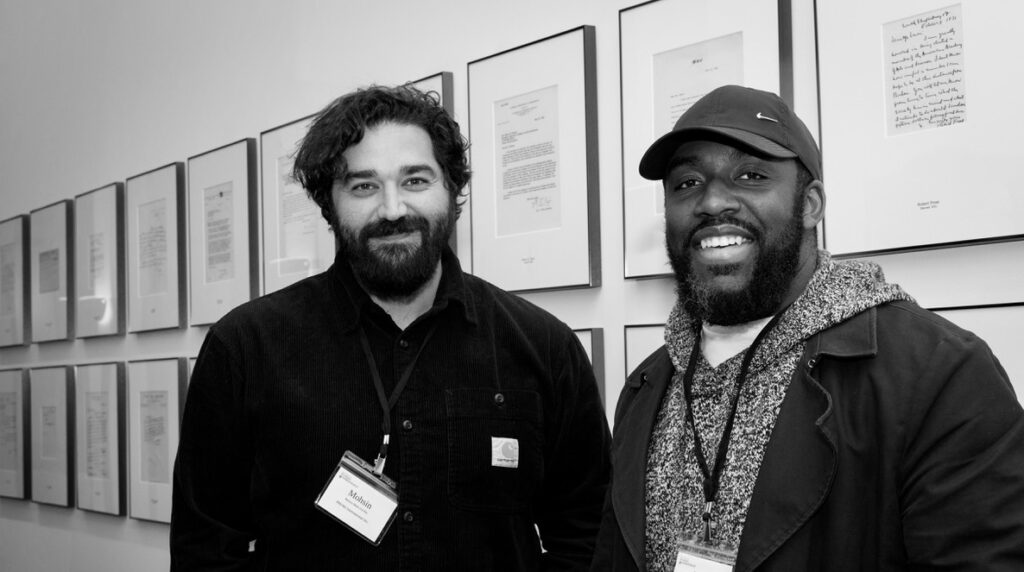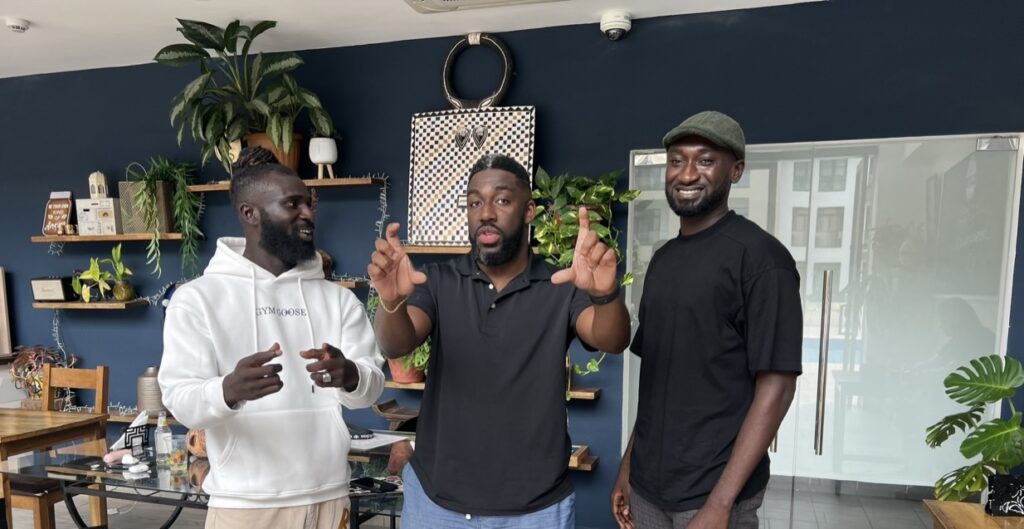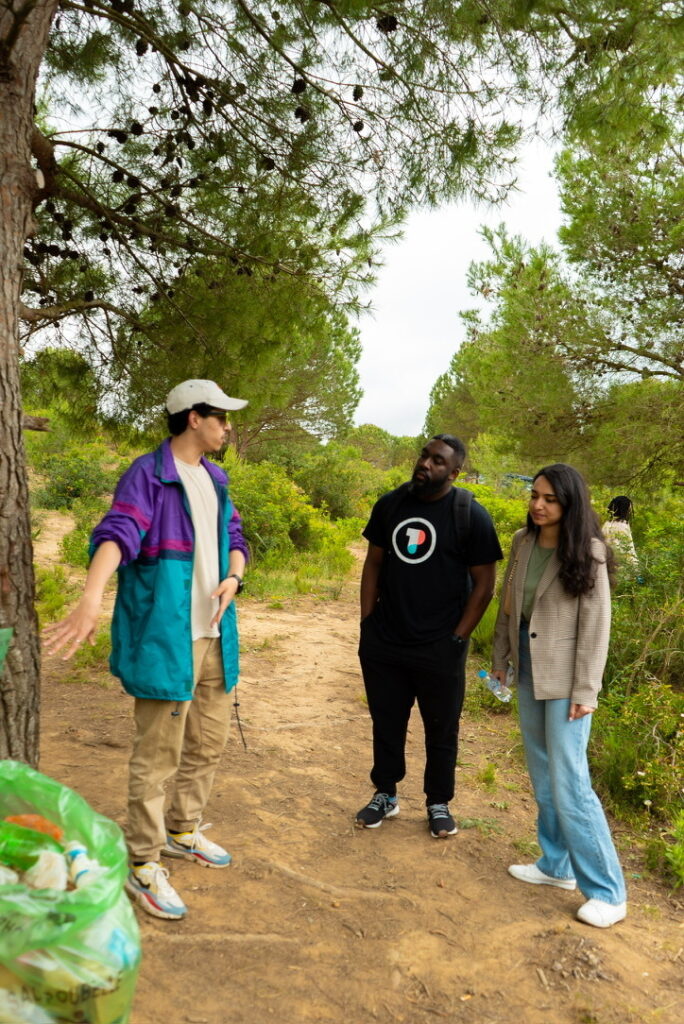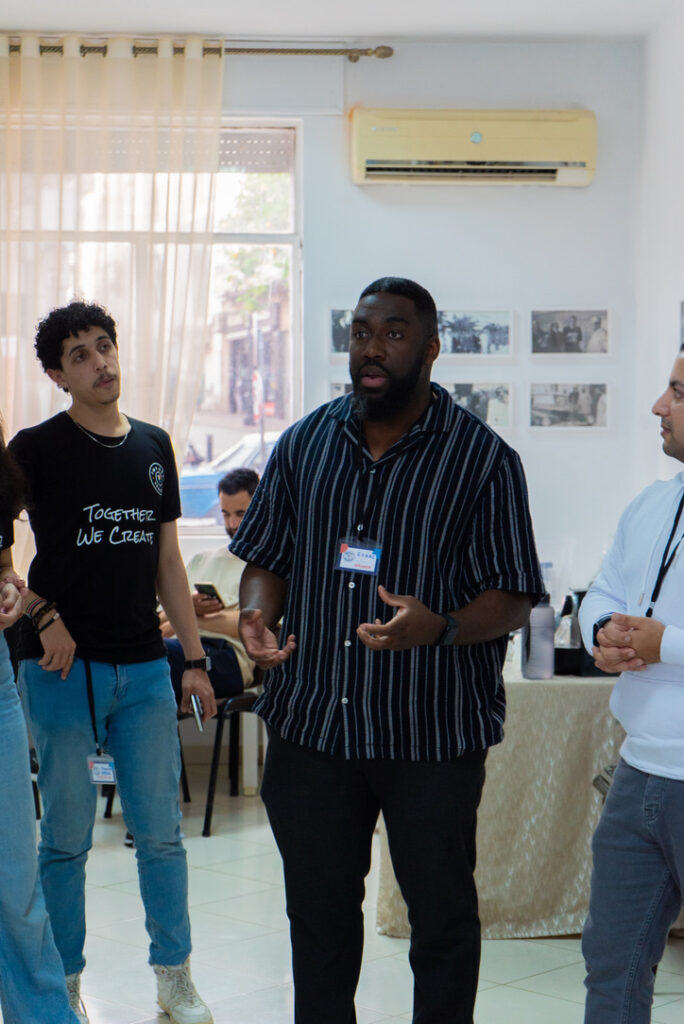From Moments to Movements: Reflections on Youth Leadership
By Isaac Cudjoe, CEO at Peace First
Earlier this year in London, I found myself sitting across from Hammed Kayode Alabi, a friend and esteemed board member of Peace First. Our annual catch-up in London has become a cherished tradition for me. It is a time to reflect on the past year’s challenges and triumphs. But this day’s conversation took a deeper turn, leading us into the nuanced journey of young changemakers. Hammed shared stories from his youth — of balancing familial responsibilities with the drive to address societal needs. His experiences as a young changemaker highlighted the barriers that persistently hinder youth from realizing their full potential. This conversation ignited a deeper understanding in me of the complexities faced by today’s young leaders, a poignant reminder of the delicate balance between personal obligation and the pursuit of broader social change, a balance that often defines the journey of those who strive to make a difference.
Reflecting on the past two years at Peace First, I am struck by the profound lessons I’ve learned and the enduring challenges we face. Transitioning from co-CEO to CEO has been a significant journey, shaping my approach to leadership and deepening my understanding of what it truly means to empower young people as changemakers. Hammed’s reflections underscored the critical insights into the barriers that organizations like ours must dismantle to support youth leadership effectively. His stories of overcoming personal and societal hurdles as a young leader resonated with my experiences at Peace First, highlighting the need for organizations to actively create environments that not only support but also elevate the voices of young changemakers.


One of the most pressing realizations is that adult structures often unintentionally impede young people’s ability to lead. These structures, built with the best of intentions, can sometimes become barriers that limit the potential of young leaders. Organizations must be mindful of the nuanced ways these barriers manifest and actively work to remove them. This is not just about giving young people a seat at the table but about creating an environment where their voices are genuinely heard and valued.
Young changemakers need organizations that understand the complexity of their experiences and the ecosystems in which they operate. They need support systems that are flexible and responsive to their unique challenges. Too often, traditional metrics of success fail to capture the true impact of their efforts. We must shift our focus from measuring moments to nurturing movements — movements that sustain and grow beyond individual achievements to create lasting change
In my role, I’ve seen firsthand how the journey of a young person leading change is often fraught with obstacles that can seem insurmountable without the right support. It is crucial for organizations to recognize and address these barriers, whether they are logistical, financial, or systemic. We need to build bridges for young people, not just to provide access but to walk alongside them in their journey, ensuring they have the resources and support they need to succeed.


At Peace First, we’ve strived to center our work around the young people we aim to empower. This means not only involving them in decision-making processes but also listening to their stories and understanding their needs. It’s about fostering an environment where young leaders feel valued for their contributions and where their impact is measured not just by numbers but by the depth of change they inspire.
What we must do next is neither simple nor easy. The path ahead requires us to reimagine our structures, challenge our assumptions, and commit to a more inclusive approach that genuinely empowers youth. This work demands more than just good intentions; it requires a collective effort and a deep commitment to supporting the next generation of changemakers.
As we look to the future, I am filled with a sense of urgency and hope. There is a critical need for more voices, more hands, and more hearts dedicated to this cause. We must move beyond the confines of traditional organizational thinking and embrace a model that prioritizes the needs and potential of young people. It is about creating a movement that not only addresses immediate challenges but also builds a foundation for sustained, meaningful impact.

The past year has taught me that while moments of success are important, it is the movement — the ongoing, collective effort to create change — that truly matters. We must continue to ask ourselves how we can better support young leaders and how we can remove the barriers that stand in their way. By doing so, we not only honor the spirit of youth-led change but also ensure that the impact of their work resonates far beyond the immediate moment.
As I step into year three, I carry with me a deep commitment to this mission and a renewed determination to champion the cause of youth empowerment. The work ahead is challenging, but with the right support and a shared vision, I believe we can create a future where meaningful change is in the hands and hearts of every young person.

